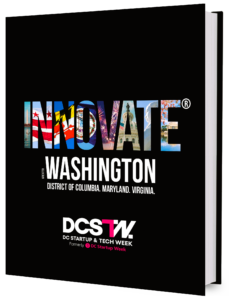As the founding director of Georgetown Entrepreneurship, Jeff Reid is passionate about educating, mentoring, and infl uencing the next generation of entrepreneurs to use their new business ventures to serve the common good.
“Common good entrepreneurship involves creating and operating businesses that not only aim for fi nancial success but also strive to generate positive social and environmental impacts,” Reid said. “It emphasizes sustainability, ethical practices, and a commitment to improving the well-being of communities and society as a whole.”
The concept of common good entrepreneurship aligns with Georgetown University’s Jesuit principles of service to others and the pursuit of social justice.
According to Reid, this approach fosters a culture of ethical leadership that is imperative when creating both profi table and benefi cial business models in society.
However, Reid explained that common good entrepreneurship should not be seen as a business strategy but instead as a mindset of how success is viewed and measured.
“It challenges the traditional profi t-only model and encourages entrepreneurs to consider the broader implications of their actions,” Reid said.
“By fostering this mindset, we can cultivate a generation of leaders who are equipped to tackle the pressing challenges of our time and create a more equitable and sustainable world.”
In his courses at Georgetown McDonough, Reid educates students about the signifi cance of social impact, community development, personal alignment, innovation, and resilience in the venture industry. These qualities are leveraged to not only address complex business problems that arise but are also used to build more resilient businesses that are capable of adapting to societal needs and expectations.
When asked about the specifi c qualities of ventures that aim to serve the common good, Reid said they typically share the following characteristics:
- Mission-driven: Clear focus on addressing a social or environmental issue.
- Sustainable: Commitment to long-term environmental stewardship and sustainable practices.
- Inclusive: Promoting diversity and inclusion within the organization and through its impact.
- Ethical: Adherence to high ethical standards in all business operations.
- Community-oriented: Active involvement and investment in the local community.
- Transparent: Open communication about business practices and impact.
If interested in connecting with Reid, please email him at [email protected].













